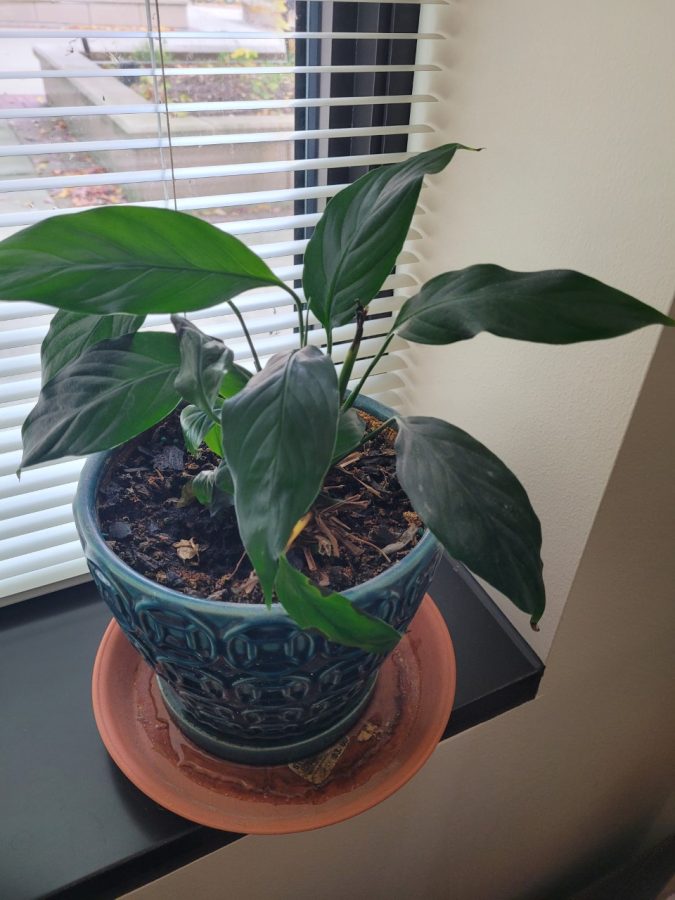Dig this: Plant care is self-care
Ivy Buchan / The Advance-Titan– Caring for plants has many mental health benefits such as reducing anxiety levels, decreasing stress levels and sparking creativity.
November 9, 2022
There is a peace lily in my office; we drink from the same water bottle. In the winter, my father brings his potted rosemary bush inside to share the house’s warmth. My partner dreams of having a little cat to share morsels from the table with.
This is the oldest story of humankind: we find ourselves eternally compelled to care.
There is a world where the peace lily grows alone in the ground, where my father’s rosemary toughs out the winter like wild plants, where my partner need not share their meals with a small animal.
And yet, here we are.
There is a host of anecdotal evidence to suggest that caring for living things is beneficial to one’s health, both mental and physical.
On the surface, this seems odd. Why would watering an ornamental plant three times each week create a tangible benefit for a person?
For me, having an external being to care for makes it easier to care for myself. When I water my peace lily, I often pause for a drink myself.
But why is caring so universal?
My hypothesis is that caring is wired into what it means to be a person. Caring gives us purpose, something to do and an indication that we influence the world around us.
It may just be my experience, but I’ve never met a happy person who had no other life to look after.
Plants and small animals are also uncomplicated as objects of affection. A rosemary bush cannot act in malice; a cat (properly fed and treated) will give no cause for hatred. As such, they become good proxies to work out how to care for the world around us.
Gardening makes me better at loving my friends. So, here’s my take on how to get started.
First, you’ll need to wrap your head around what it means to take care of another life and plan accordingly. This can be as simple as setting an alarm on your phone reminding you to water your plants or feed your fish.
Second, select the object of your care. It’s a good idea to start small with this kind of thing.
I recommend plants — succulents are always good. The various kinds of coleus plants are simple and peace lilies, of course, present almost no challenge.
Don’t start too big; if you’ve never had a pet before, saltwater fish are an extremely bad idea. A goldfish might be more manageable, but for the sake of this article, I’m going to focus on plants.
Third, learning to provide care is not easy, so take it easy on yourself if the first few attempts result in wilted leaves or dirt on the carpet. There will be mistakes. Don’t beat yourself up, we all make them, but this is why it’s better to start with a $5 cactus than a dog.
Fourth, don’t give up. I believe that providing care — for plants, animals and each other — is why we’re here, but like everything else, it’s a skill that takes time to build.
When you get frustrated with the progress (or lack thereof), remind yourself that you’re not being graded on this. If you make an honest effort, however minimal, you’re doing it!
I won’t pretend that these steps will work for everyone, but if you’re feeling run down, I’d encourage you to try them. I believe caring is fundamental.
Routines of care can work wonders on the soul. I love my peace lily. I hope you find a life to love likewise.
Ivy Buchan is an administrative assistant at the UW Oshkosh College of Business.














